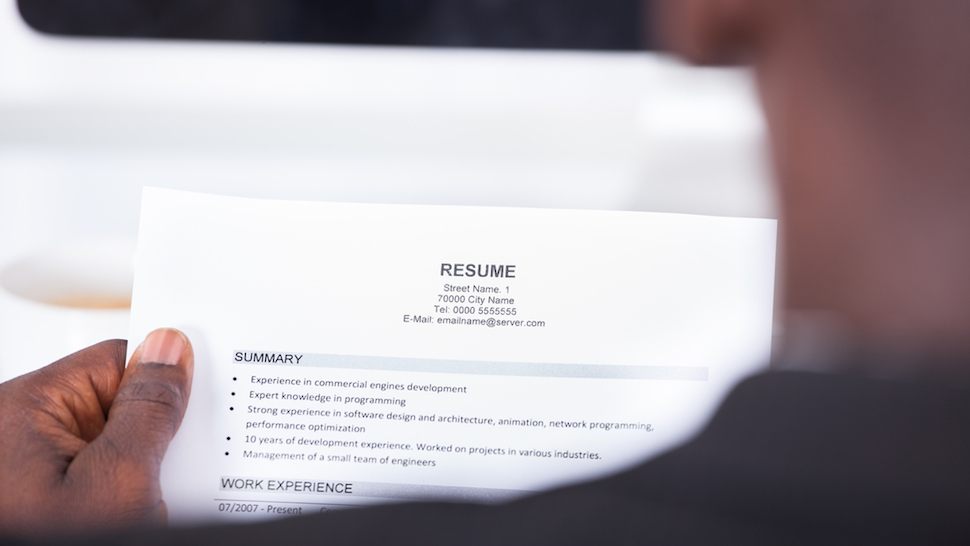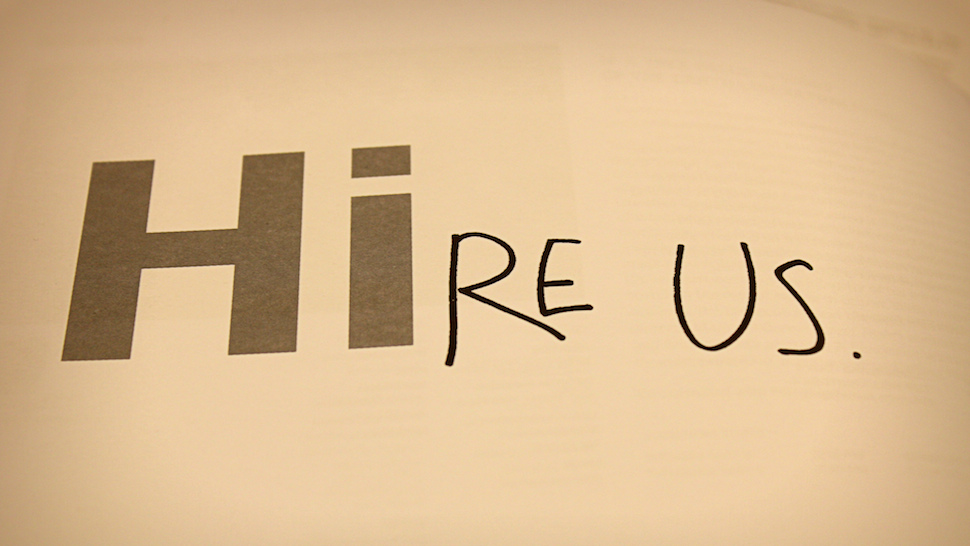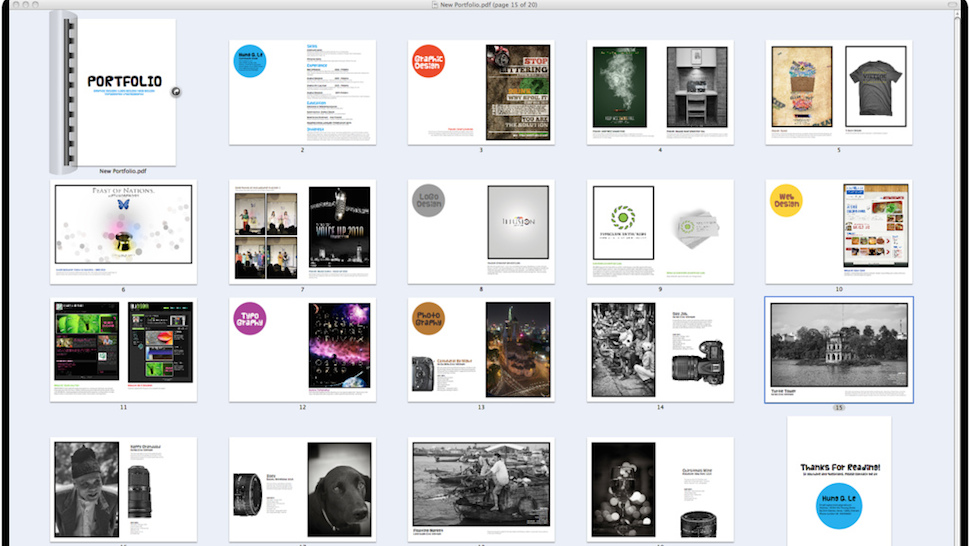There’s a point in every career where we get a little lax. We’re not engaged with our work, we don’t stay in touch with referees, or we forget to keep our resume up to date. Here’s how to give your career a tune-up and keep your professional life humming along smoothly.
Photos by Mario Savoia (Shutterstock), Andrey_Popov (Shutterstock), Nan Palmero, Dita Margarita, Hung Lee, Pawel Loj, and Lars Plougmann
A quick career tune-up will save you time and headache in the long run. Instead of waiting until you’re looking for work (or have to find work quickly), getting on top of these things now will give you a jumpstart when you do need to find something new. It doesn’t take a lot of time to go through these steps, but you will want to set aside an afternoon or a day one weekend for them all. Power through them together so you don’t lose focus. Let’s get started.
Update Your Resume The Right Way

I’ve been guilty of waiting to update my resume until I’m fed up and ready to look for something better. Don’t wait until then — it’s the worst time for you to think critically about the great work you’ve done at your current company, what types of jobs you really want to reach for, and how you should put all of that into your resume. Instead, update your resume now, and keep it updated regularly over time. Here are some suggestions to help:
- Schedule time, maybe monthly, to update your resume. Give your resume, your portfolio, and any examples of your work a fresh look regularly to make sure they have all the information you’d want someone to see. Even if one month you have nothing to add or change, it’s better to look it over from a fresh perspective than to let it get stale.
- Keep a work diary you can draw from for updates. We’ve discussed how important it is to keep track of your wins, even the small ones. If you keep a work diary, you can log the events you want to remember, progress you’ve made, and your achievements. Those achievements and successes are great resume fodder. You won’t have to rack your brain to remember them later if you write them down as they happen.
- Steer clear of resume killers. Remove resume items that are outdated, not applicable to the jobs you want, or just make your resume less useful or interesting to someone who’ll read it. Long objective statements, unwanted personal details, your old pizza delivery job — it’s all probably irrelevant and taking up space. Do make sure to highlight relevant keywords and skills that will help your resume get past robots, however, and make sure to tie those keywords to results you can talk about in an interview.
- Build multiple resumes for different types of jobs you want to apply for. Common wisdom is that you should tailor every resume to the job you want, and that’s absolutely true, but having some templates won’t hurt. They will give you a jumpstart, so you can pull out your “engineer” template when applying for something technical, or your “manager” template when applying for something administrative. From there, customise it and send it away.
- Seek out experiences that will get you your dream job. Even if you’re not working in your dream field right now, pay attention to the things you do right now that can help you get there. Remember. even if you don’t think you have the experience for your dream job, you’re potentially doing things that can help you get it, and those things should go on your resume.
- Get the training and skills that will make you more valuable — either at this job or the next. While it’s not technically updating your resume, update yourself with skills to put on your resume. May jobs offer training in-house, or will pay for relevant classes or certifications. Take advantage of them, and use those skills to bolster your resume. Even if they don’t, consider beefing up your resume with volunteer experience. Both options make you more valuable, skilled, and give you plenty to talk about in an interview (or the next time you ask for a raise.)
Keeping your resume up to date over time makes sure that any hiring manager or recruiter always sees your most recent accomplishments and achievements. Since many job boards and hiring sites float recently-updated resumes to the top of the pile, this way you’ll always be at the top of the list when companies look for candidates.
Update Your Social Networks With Current Information

The next big step is to make sure your social networks and your public persona are updated. You don’t necessarily have to have completely separate public and private online lives, but you can bet that the first thing a potential employer will do is go Google you, check out your social profiles, and see what they can learn about you. At the very least, make sure your Facebook privacy settings are where you want them to be, and your public persona on sites like LinkedIn are updated with current information and accomplishments. Ideally, you want someone doing a Google search for you to turn up a consistent message that lines up with your resume, but doesn’t hide your personality.
Remember, your social profiles can be great tools to help you get a job. All you have to do is clean them up a little bit and you’ll make a great impression on anyone who goes looking for them — and you can be absolutely sure that they will.
Craft A Perfect Cover Or Intro Letter Before You Need It

Next, write the perfect cover letter that tells your personal story and explains why you’re interested in your dream field. It’s important to write one that employers will actually read, as there’s plenty of evidence that few people read them anyway. Even if you don’t use your letter as a cover letter, it can also be a great way to introduce yourself to potential employers or companies that interest you.
Your cover letter should be tailored to the job you’re applying for, but again, it doesn’t hurt to have a template or two ready for tweaking when you find something you want to apply for. The basics, like your contact information, introduction, skills you’ll want to highlight for any job, and a strong, clear closing statement should be consistent across all of your templates. We’ve also mentioned that writing your cover letter like an acceptance speech is a good way to make an impression.
The acceptance speech angle is useful because it requires you to learn a bit about the company and the job before you even send the letter in. Going that extra mile and explaining how your goals and skills line up exactly with what the company is looking for — and thanking them for realising it — means the hiring manager doesn’t have to figure it out. Crafting a good letter takes time and effort. Don’t wait until you’re rushed for time or need to apply for a dozen jobs — start now.
Build A Professional Portfolio

Even if you don’t work in a field that traditionally “produces” something, you can stash away some examples of your work to show others. Of course, if you wait until you’re jobless to build your portfolio, you’re stuck digging through months or years of work looking for high points. Instead, build your portfolio as you go along, and highlight those big wins and accomplishments we mentioned earlier.
In some cases, it’s as easy as saving a few praise-filled emails from customers or awards from your manager. For others, save a copy of something you designed or built that really made you proud. Whatever it is, if you stash them away when you feel good about them, the final form your portfolio takes is less important — you’ll already have material to put into it.
We touched on this in our guide to promoting yourself without being sleazy: Whether your portfolio is a website that highlights your artwork, saved copies of your writing, GitHub code examples, a book of projects you led, or testimonials to your brilliance, it’s important to have it prepared — you don’t want to spend time putting that together when you’re hunting for jobs.
Reach Out To Your Network To See If They Need Help

When you’re looking for work — or worse, jobless — is probably the worst time to reconnect out of the blue with your professional network. Remember, your professional network is really just your group of work friends who have agreed to help each other out whenever they can. Waiting until you need something from them is a bit like only asking your friends to hang out when you need them to help you move.
Instead, use the layoff test to decide who to reach out to. In short, if you were to get laid off right now, who would be the first five or ten people you’d call to see if they had leads in your field? Give them a call, reconnect, and see if you can help them. Catch up on your respective careers, and offer your help if you have any to give. The same rule applies to people you consider professional references. If it’s been years since you spoke to someone you list on your resume, it’s been too long.
Of course, if you can’t think of five people, much less ten, it’s time to beef up your professional network. Think about the people you used to work with and whether you could vouch for them (and if they could vouch for you.) Managers you got along with, clients you trusted, even vendors or coworkers you worked well with are all great candidates — and in most cases, they can use your help as much as you can use theirs. Look them up now, before you actually need to ask them if they know anyone hiring or to be a reference for you.
Get Re-Engaged With Your Current Work

Finally, while much of this advice is how to tune up everything you need to get a new or better job, you should also take some time to treat your current job. After all, if your job sucks, there may be something you can do about it to make it better. If you’re just feeling down and disengaged from your work, there’s plenty you can do about that too, and none of it involves “mandatory fun.”
The first thing you should do is identify why you’re disengaged, or where your current pain points are. Sit down and do a proper self-review to identify what you like or hate about your current gig. If you put some time and thought into it, you’ll be able to identify the things that drag you down. If those things aren’t integral to your job, talk to your boss about them and try to get them removed (so you can focus on the important stuff) or delegated. Alternatively, if you’re just overwhelmed and struggling to get organised, we can’t say enough good things about taking time out for a weekly review. Doing so puts you back in touch with what you have on your plate and gets you out of “busy mode” and able to see the big picture again. It also gives you the flexibility to find a productivity method that works for you.
If you need some more tips on how to stay engaged at work, this thread at Hacker News is full of good ones. Some are pretty basic, like remembering to appreciate the fact that you have a reliable paycheck, but others, like finding side projects you’re passionate about or even mentoring juniors at your job to give it a little more meaning, are great. Other important things you may not consider are covered too — like making sure you take care of yourself, eat well, exercise, and get enough sleep. All of those things have more to do with how you handle a job — crappy or not — than you might think.
Ideally, these tips will make sure you’re ready to hit the ground running if you need to look for something new, or give you confidence to reconnect with your current job and stick with what you have. Wherever you land, a quick career tune up makes sure you’ll be in a good mental place, and your credentials will be ready for anything.

Comments